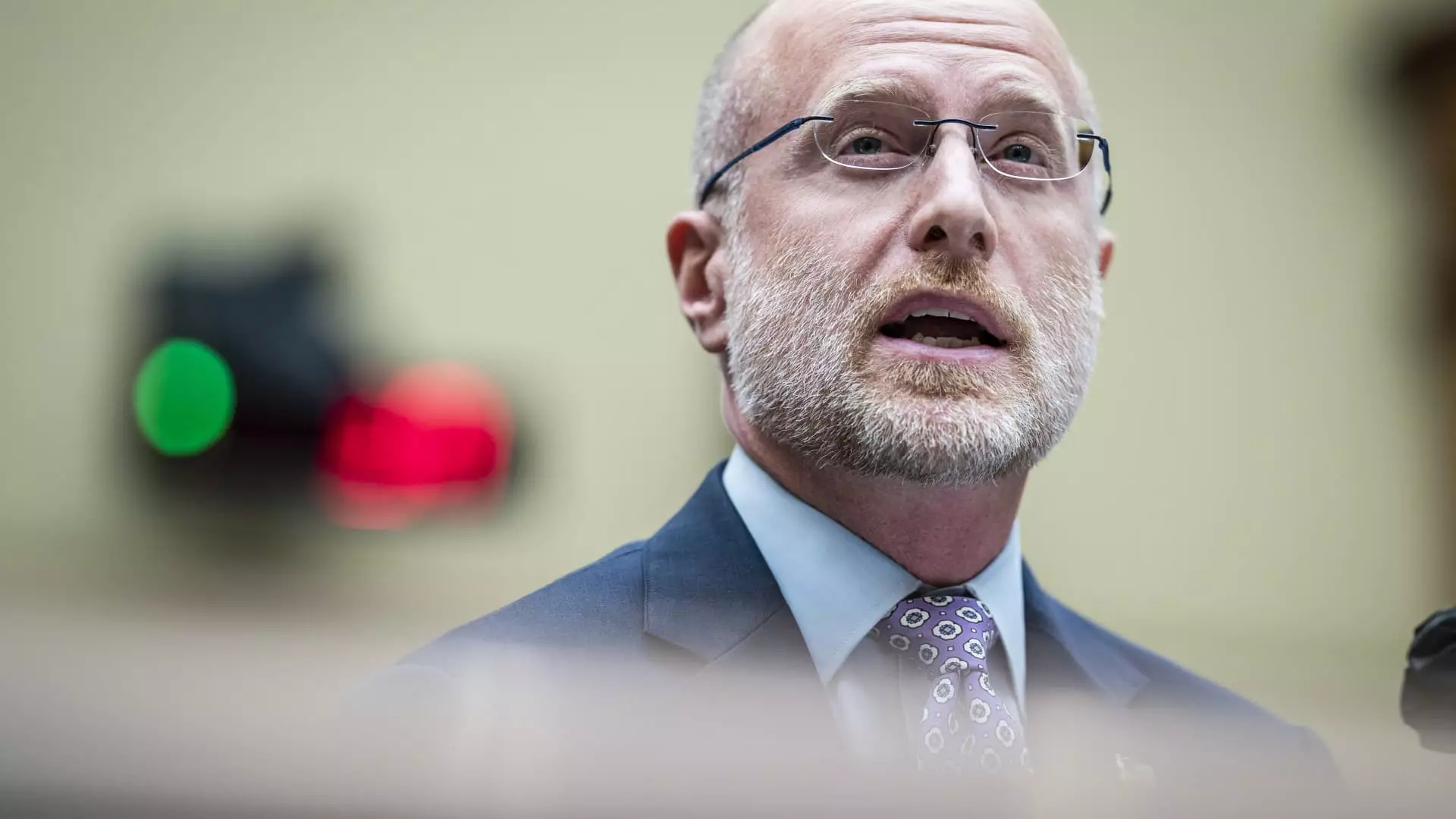The appointment of Brendan Carr as the chairman of the Federal Communications Commission (FCC) by President-elect Donald Trump signifies a notable shift in the regulatory landscape of telecommunications in the United States. Carr, who has been vocal against the Biden administration’s policies, offers a perspective that aligns closely with Trump’s criticisms of Big Tech and traditional media. With an energetic approach towards deregulation and a commitment to what he describes as restoring free speech rights, Carr’s leadership could usher in significant changes to the FCC’s priorities.
One prominent area of contention that Carr has addressed during his tenure as the leading Republican commissioner has been the FCC’s handling of broadband subsidies, particularly with regard to SpaceX’s Starlink internet service. His sharp critique of the agency’s reluctance to finalize approximately $900 million in funding is indicative of his broader distrust towards federal oversight that he believes stifles innovation and competition. Carr argues that the lack of these subsidies represents both a missed opportunity for economic advancement and an infringement on the connectivity rights of Americans. This stance can be seen as a bold declaration that prioritizes technological progress while challenging the status quo imposed by previous administrations.
A Call for Free Speech and Accountability
Carr’s assertions that major tech companies such as Meta, Google, and Apple engage in censorship reflect an overarching concern about the power of these entities over public discourse. His claim that the FCC must “restore free speech rights for everyday Americans” resonates with a growing segment of the population that feels disenfranchised by the perceived control exercised by big corporations over information. Furthermore, Trump’s agreement with Carr on the potential reassessment of broadcast licenses for networks like ABC and NBC underscores an administration increasingly eager to hold media accountable for their content and practices. This indicates a pivot towards more conservative media policies, heavily influenced by Trump’s rhetoric.
Carr’s position extends beyond domestic policy, marking him as a staunch critic of Chinese telecommunications firms. His historic visit to Taiwan as the first FCC commissioner speaks to a broader strategic goal of the Trump administration to reinforce American geopolitical interests in the region. By maintaining a hard stance against perceived threats from China, Carr is likely to pursue policies that favor U.S.-based companies, especially in the fast-evolving tech industry. This approach aligns with Trump’s economic agenda, seeking to bolster American companies abroad and minimize foreign influence in critical sectors.
As the FCC braces for Carr’s leadership, the agency’s future seems poised for a reevaluation of regulations, particularly those governing broadband access and media conduct. With Carr at the helm, one can anticipate a robust push for deregulation aimed at fostering innovation, alongside a more aggressive stance against perceived censorship by tech giants. In this evolving landscape, the significance of free speech and the critique of foreign entities will likely remain at the forefront. The upcoming decisions made by Carr and the new administration could very well shape the entire face of American telecommunications, addressing both the technological and societal concerns of the day.


Leave a Reply